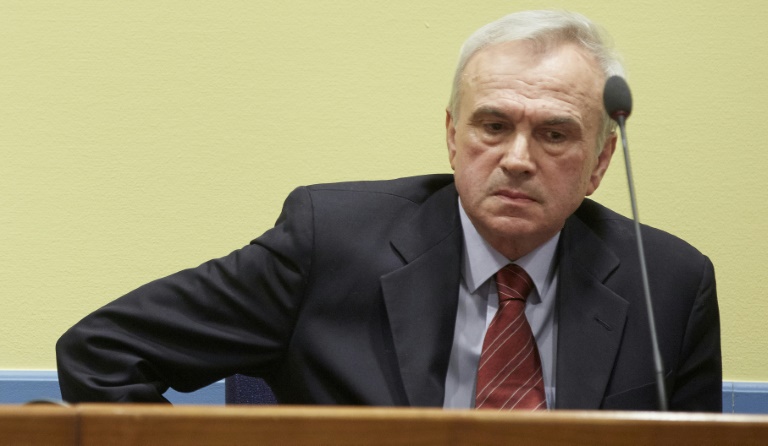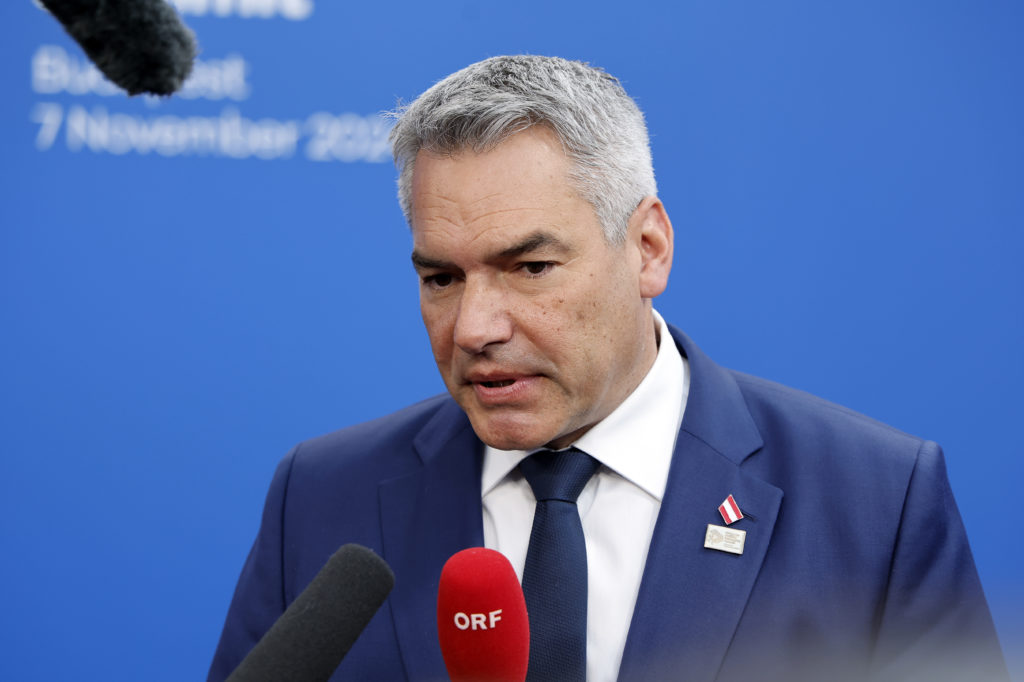Two former Serbian spy chiefs in Slobodan Milosevic’s regime face a UN court verdict Wednesday in a retrial on charges of running death squads in the 1990s Balkans wars.
Jovica Stanisic, 70, the former head of Serbia’s state security service, and his deputy Franko Simatovic, 71, could get life sentences if found guilty of five charges of crimes against humanity and war crimes.
The pair, who deny the charges, allegedly backed paramilitary groups behind a reign of terror in Bosnia and Croatia as they tried to force non-Serbs out of towns and villages.
They included an elite Serbian unit dubbed the “Red Berets” and the feared “Tigers” paramilitary outfit run by Zeljko “Arkan” Raznatovic, which were allegedly responsible for hundreds of murders.
Stanisic and Simatovic were acquitted in a shock verdict in 2013 by the International Criminal Tribunal for the former Yugoslavia (ICTY) in The Hague, but after an outcry judges ordered a retrial in 2015.
Judges will hand down their verdict at 1300 GMT in a verdict carried on a livestream with a half-hour delay. The accused were on bail but will be in court after handing themselves in, a court spokesperson told AFP.
– Persecution and murder –
The case is one of the last left over from the wars that tore apart Yugoslavia after the fall of communism, with former Bosnian Serb military chief Ratko Mladic having had his life sentence for genocide upheld earlier in June.
The Balkans wars left some 130,000 people dead and millions displaced.
UN prosecutors say Stanisic and Simatovic were part of a joint criminal enterprise that included the late Serbian president Milosevic, who died in The Hague in 2006, and Bosnian Serb leader Radovan Karadzic, also serving a life sentence.
They are charged with the crimes against humanity of persecution, murder, deportation and forcible transfer, and the war crime of murder.
Stanisic and Simatovic “organised, supplied, financed, supported and directed” the Serb paramilitary groups that murdered Croats, Muslims and other non-Serbs to force them out of large areas, seeking to establish a Serb-run state, the indictment against them said.
The indictment includes at least 280 killings in some two dozen specific attacks on towns and villages by the Red Berets and the Tigers.
It says they murdered civilians, razed villages to the ground, buried the bodies of some victims in mass graves and dumped others into rivers, mostly in 1991 and 1992.
– ‘Guns in their mouths’ –
The overturning of Stanisic and Simatovic’s 2013 acquittal was one of the first in the history of the Yugoslavia tribunal.
Judges found by a majority that the original trial had “erred” by saying the pair could not be criminally responsible because they did not give the units specific orders to carry out the crimes.
In Croatia, troops from the Red Berets brigade — known as ‘The Kninjas’ — are notorious for torturing and killing prisoners of war and civilians in the Serb rebels’ stronghold of Knin as well as in nearby Benkovac and the central town of Glina.
In mid-1991, they set up an improvised prison at the Knin fortress where they tortured detained Croatian policemen and civilians by “beating them with hands, feet and ox tendons… pushing guns in their mouths” according to a local court indictment against their commander.
Stanisic and Simatovic also allegedly deployed the Serbian “Scorpion” unit, members of which in July 1995 filmed the execution of six Muslim men and teenagers from Srebrenica.
The massacre of 8,000 people at Srebrenica was the bloodiest incident of the war.
Tigers chief Arkan was indicted by the Hague court but shot dead in Belgrade in 2000.
Croat journalist and analyst Boris Pavelic said on Bosnian national radio that the verdict is the “last chance” to establish a link between the Serbian state and crimes committed in Bosnia and Croatia.
“Tribunals have unfortunately failed several times to prove this link,” Pavelic said.
burs-dk/mbx










